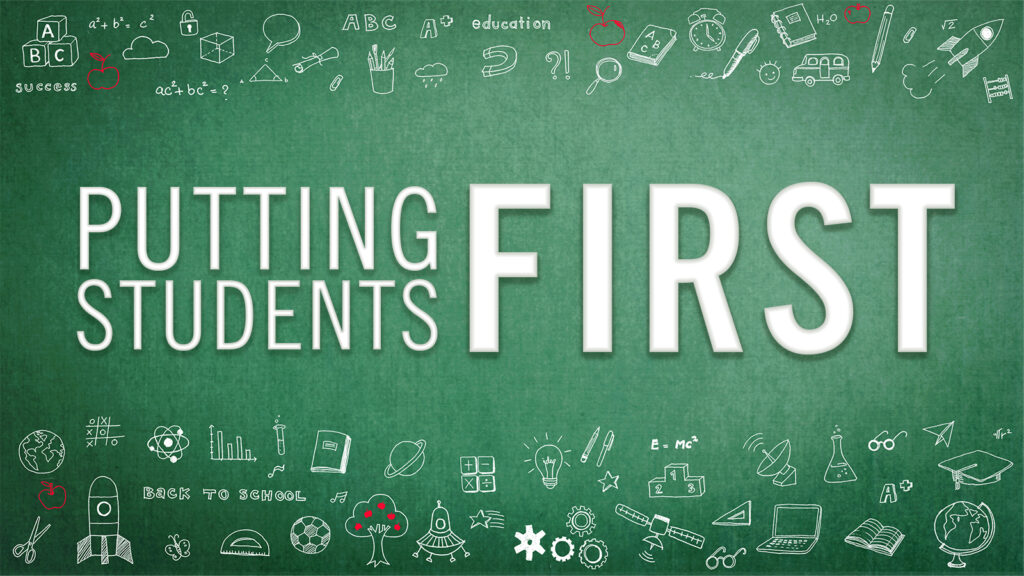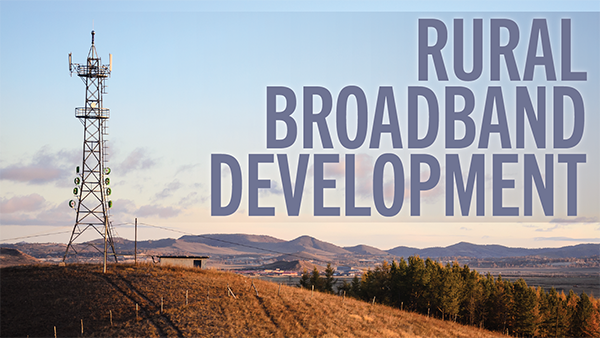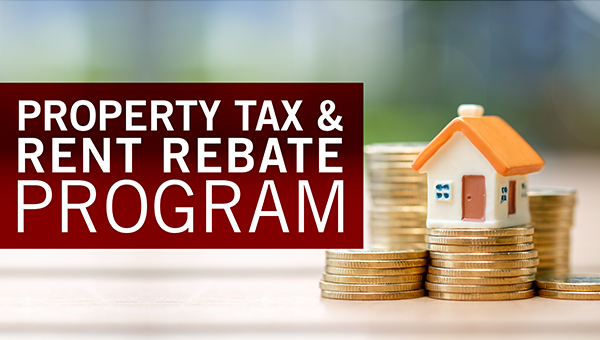
|
|||
|
In this Update:
Mastriano Introduces Bill to Ban Taxpayer Funded vehicles for Public OfficialsDecember 16, 2021 HARRISBURG – Legislation to ban taxpayer funded vehicles for public officials and employees was formally introduced by Senator Doug Mastriano (PA-33). The bill is co-sponsored by Senators Phillips-Hill, Judy Ward, Dush, and DiSanto. Under SB 963, no state official, judicial official, or state employee may be assigned a state-owned vehicle on a permanent or long-term basis. Additionally, no state funds may be used to lease a vehicle on a long-term basis on behalf of a state official, judicial official, or state employee. The ban will not apply to those whose official duties require the assignment or lease of a vehicle for emergency response. “Taxpayer funded private vehicles for public officials and employees is a perk we need to park,” said Mastriano. “The existing system is wasteful, does not provide enough oversight, and can be easily abused. As an example, a member of the House of Representatives had three accidents in two state vehicles over three years. This included a hit-and-run fender bender this year while driving with a suspended license. “Our state pays not only for personal vehicles, but also the gas, insurance, repairs, and potential lawsuits. We owe it to our constituents to look for ways to save taxpayer dollars. SB 963 is a great start to that.” SB 963 has been referred to the State Government Committee where it now awaits a vote in 2022. Mastriano Votes to Expand School Choice EligibilityHARRISBURG – The Senate approved three bills that preserve school choice access for families and give more flexibility to students pursuing college degrees without incurring unnecessary debt, Senator Mastriano said. “I was proud to vote yes on all three bills. Legislation like this empowers more parents to make the decision in determining what type of school environment is best for their child. It moves Pennsylvania into a direction that funds students and families over special interests.” Senate Bill 931 excludes pandemic stimulus payments from a household’s income when determining eligibility for the Educational Improvement Tax Credit (EITC) and Opportunity Scholarship Tax Credit (OSTC) programs. This important legislation ensures children will not see their educational opportunities diminished because of one-time government handouts. Senate Bill 932 revises the definition of “school-related fees” so that students can use EITC and OSTC scholarships toward dual enrollment programs. This option gives Pennsylvania’s next generation of professionals the flexibility to pursue college degrees or access career training while minimizing excessive student loan debt. Both bills will head to the House of Representatives for further consideration. House Bill 1642 loosens the threshold for schools to be considered “economically disadvantaged,” which would allow more students to access a supplemental tax credit scholarship offered through the EITC’s Economically Disadvantaged Schools program. It also boosts the awarded amount to $2,000 for elementary and middle school students and $4,000 for high school students. These revised thresholds will open the door to educational opportunity for so many deserving students left behind by the program’s existing constraints. House Bill 1642 now awaits the governor’s signature. Measures to Increase Jobs in Manufacturing and at Airports Approved by Senate
Continuing efforts to restore Pennsylvania’s economic vitality, the Senate approved bills to spur job growth in manufacturing and at airports across the commonwealth. Senate Bill 706 establishes the Max Manufacturing Initiative Fund and Max Manufacturing Endeavor Loan Fund. This bill aims to create stronger public-private partnerships between state universities and private entities and maximizes research capabilities with cutting edge technologies. Senate Bill 562 creates the Airport Land Development Zone program, providing tax credits to employers that make a significant new investment by expanding operations and creating new jobs. Passage of these measures is the latest in a series of Senate votes aimed at moving Pennsylvania from pandemic to recovery. Last month, the Senate approved two measures making it easier for small business employers to remain competitive and create jobs. Senate Bill 706 and Senate Bill 562 will be sent to the House of Representatives for consideration. Senate Acts to Provide Parents with Online Access to their Children’s School Curriculum
Parents would have greater ability to review what their children are being taught in school through curriculum transparency legislation approved by the Senate. House Bill 1332 would require K-12 schools to post curricula online in a standardized, user-friendly manner. Under the bill, beginning with the 2022-23 school year, school districts must post on their websites an internet link or title for:
To prevent placing another burden on teachers, the bill stipulates that a school administrator or designee would be required to post the curricula online. House Bill 1332 is on it’s way to the Governor. Senate Votes to Expand School Choice Eligibility
The Senate approved three bills that preserve school choice access for families and give more flexibility to students pursuing college degrees without incurring unnecessary debt. Senate Bill 931 excludes pandemic stimulus payments from a household’s income when determining eligibility for the Educational Improvement Tax Credit (EITC) and Opportunity Scholarship Tax Credit (OSTC) programs. This important legislation ensures children will not see their educational opportunities diminished because of one-time government handouts. Senate Bill 932 revises the definition of “school-related fees” so students can use EITC and OSTC scholarships toward dual enrollment programs. This option gives Pennsylvania’s next generation of professionals the flexibility to pursue college degrees or access career training while minimizing excessive student loan debt. Both bills will head to the House of Representatives for further consideration. House Bill 1642 loosens the threshold for schools to be considered “economically disadvantaged,” which would allow more students to access a supplemental tax credit scholarship offered through the EITC’s Economically Disadvantaged Schools program. House Bill 1642 was sent to the governor for enactment. Senate Prohibits Vaccine Mandates for School Children
As Pennsylvania has struggled to keep children in their classrooms because of questionable COVID-19 policies, the Senate acted to prevent students from being barred from school if they don’t get vaccinated for COVID-19. Senate Bill 937 would prohibit a child from being required to be immunized for COVID-19 as a condition of attendance in any public or private K-12 school. The bill now heads to the House of Representatives for consideration. The bill does not contest the efficacy of the Pfizer-BioNTech COVID-19 Vaccine, which is now available to children ages 5 to 15 under U.S. Food and Drug Administration (FDA) emergency use authorization, and full FDA approval for anyone 16 years of age and older. The legislation acknowledges parents have a right to be involved with the health care decisions for their children. And because the COVID-19 vaccine for those under age 16 has only received FDA emergency use authorization (EUA), federal EUA law prohibits patients from being coerced into taking the vaccine. That means those children have the right to refuse the medical treatment, with their parents exercising that right on their behalf. Landmark Bipartisan Broadband Legislation Approved by Senate
The Senate acted to improve access to high-speed internet in underserved communities by creating the Pennsylvania Broadband Development Authority (PBDA). The bill was sent to the governor for enactment. House Bill 2071 would establish a single point-of-contact for federal broadband funding and includes safeguards so legitimate contractors are chosen. Entities eligible for funding must have technical, managerial and financial expertise to design, build and operate high-speed service infrastructure. The PBDA primarily would be tasked with creating a broadband plan that allows the state to apply for competitively awarded federal infrastructure money. The bill would also require the state to create a database to monitor all broadband deployment activities across the state. Deadline Approaching for Property Tax/Rent Rebate Applications
The deadline for older and disabled Pennsylvanians to apply for rebates on rent and property taxes paid in 2020 is Dec. 31, 2021. The rebate program benefits eligible Pennsylvanians age 65 and older, widows and widowers age 50 and older, and people with disabilities age 18 and older. The income limit is $35,000 a year for homeowners and $15,000 annually for renters, and half of Social Security income is excluded. Claimants of the Property Tax/Rent Rebate Program are encouraged to file their rebate applications online by visiting mypath.pa.gov. You can check the Property Tax/Rent Rebate Program instruction booklet to learn which information you will need to input/upload to complete the process. |
|||
|
|||




2024 © Senate of Pennsylvania | https://senatormastriano.com | Privacy Policy |





